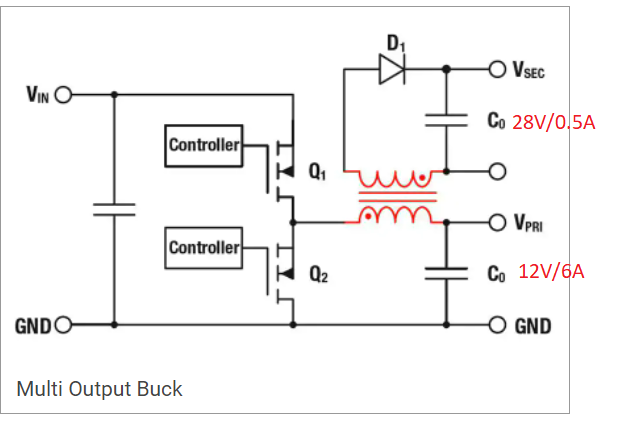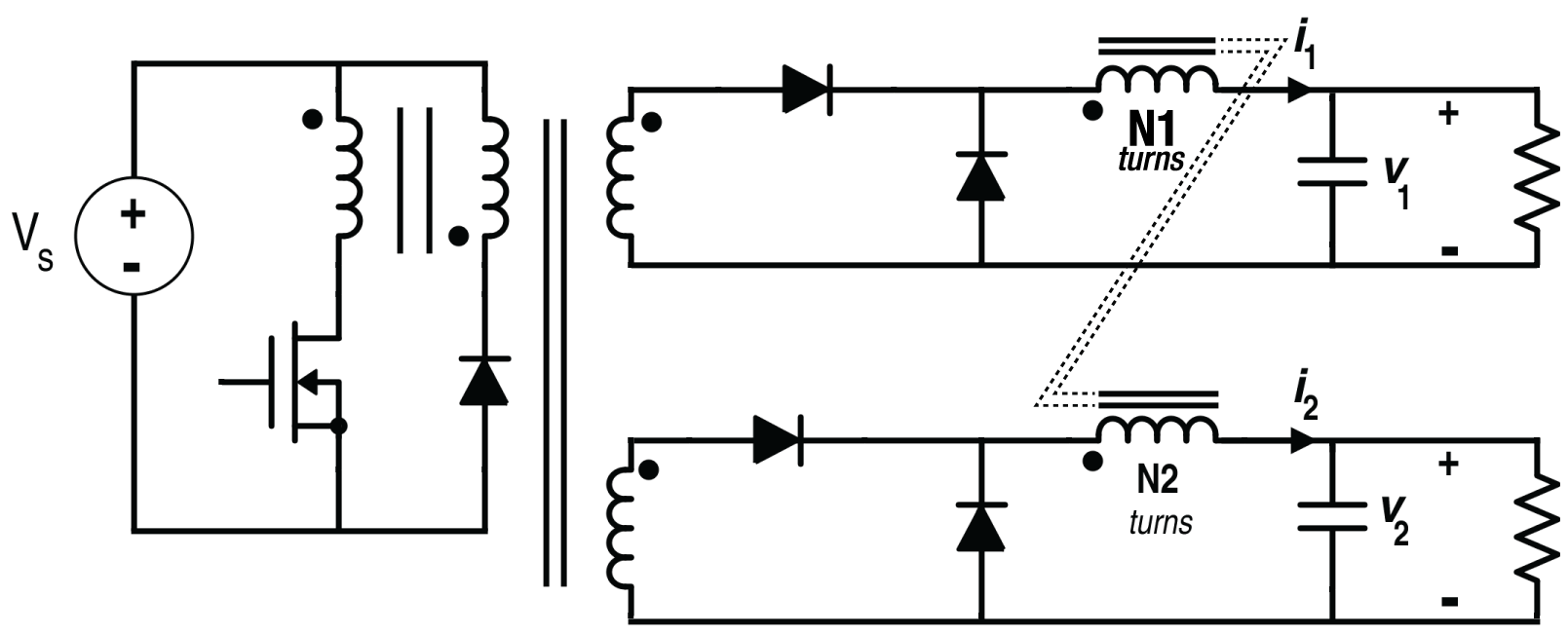In the first schematic (multi-output buck), the main purpose is to get an isolated (generally), low power (generally) "unregulated" output without the excess of complexity and cost. In a conventional buck, the magnetic field will store energy and it'll be transferred to the load. Here, some of the stored energy is stolen by the aux output. So the output voltage of this aux output will change with the loading of the main output. NOTE: If the aux output will not be isolated then it can be regulated as well.
The second schematic is a conventional multi-output forward converter. The secondary side of a forward converter is no different than a buck. There are a number of advantages of using a coupled inductor in a multi-output forward converter and here are the most important ones:
- There's a single magnetic assembly i.e. the same core is used for all windings. This saves space and cost.
- Regardless of loading of other outputs, the core will force the other outputs to run at the same state (DCM or CCM, depending on the design). This will bring better cross regulation (Cross regulation is a measure of how good the individual outputs are regulated in a multi-output power supply).
Multi-output forward converters were quite popular in 1990s and early 2000s ATX PSU designs. An ATX PSU has individual ±12V, 5V and 3.3V main outputs, so a multi-output forward converter with coupled inductor at the output was a perfect fit for up to 400W designs.


